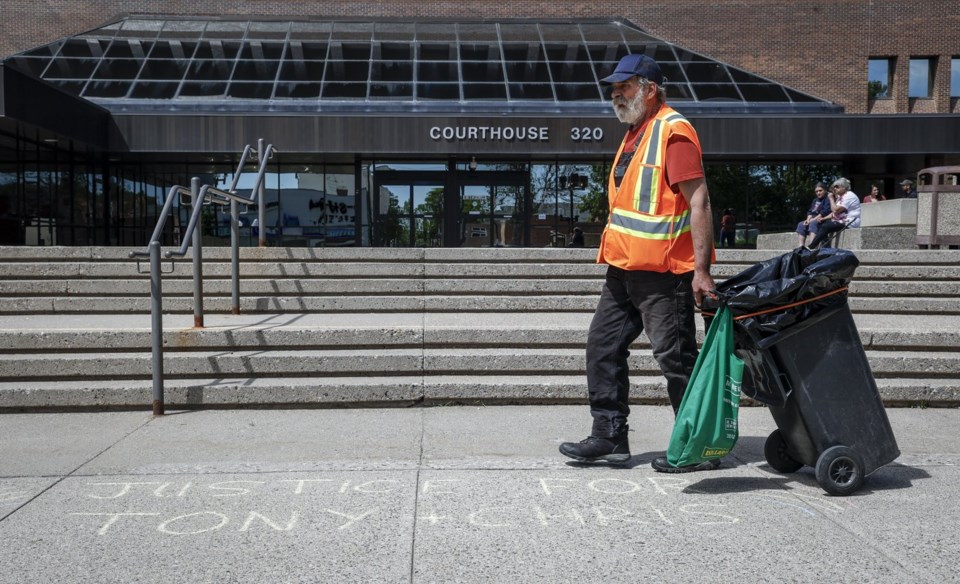LETHBRIDGE, Alta. — An undercover police officer who infiltrated the Coutts, Alta., border blockade in 2022 says Anthony Olienick told her he was committed to the cause and vowed if police interfered, force would be met with force.
"He said this is war and why he is willing to give his life. This is ground zero," the officer testified in court Tuesday at the trial of Olienick and Chris Carbert.
"(He said) if the RCMP comes into Coutts with force, they will be met with greater force. It was really intense."
Olienick and Carbert are on trial charged with conspiring to murder police officers at the blockade.
The blockade of trucks and other vehicles was one of several protests across the country against COVID-19 rules, restrictions and vaccine mandates. It paralyzed traffic at the Canada-U.S. border in southern Alberta for two weeks and became a symbol of the polarized national debate on public health and the handling of the pandemic.
The undercover officer can’t be publicly named and was referred to in court as HQ1298. Extraordinary steps were taken Tuesday to protect her safety. Media and the public were not allowed to watch her testify before the jury, but were allowed to listen in from a different room.
The officer told the trial she has worked undercover for two decades in projects across the country but mainly in Saskatchewan and Alberta.
At the Coutts blockade, she said, she and a male undercover colleague posed as a couple, handing out food and helping with kitchen duties.
She said she met Olienick at Smuggler's Saloon, a local bar that became an unofficial headquarters for protesters.
Olienick introduced himself as part of the security team and the head of social media, said the officer.
"He said he had been there since Day 1 and he had sold his house and his vehicles so he could be part of the revolution," the officer testified.
"He also said that if the RCMP would come into Coutts to try and overrun them, they would be met with resistance.
“He also told me that they had stockpiled hundreds of guns and thousands of rounds of ammunition and had the ability to outfit every man in Smuggler’s."
The officer said she didn't outwardly react.
"In terms of obviously talking about individuals that are my colleagues, it's quite alarming."
Earlier in her testimony, the officer detailed the rules and training for undercover officers.
She said the job is surveillance and interdiction, and seduction is not a tool of the trade.
"You're not allowed to use your sexuality or have anyone else use their sexuality at all during the course of the investigation. It's a non-issue," she said.
"We shut them down right away.
"We'll quite often use (stories that we have) boyfriends or will be same-sex oriented — something that will take that off the table, so that it never really enters into the equation."
Olienick and Carbert were arrested in 2022 after Mounties found a cache of guns, body armour and ammunition in trailers in the area.
They are also charged with mischief and possession of a weapon for a dangerous purpose. Olienick faces a further charge of being in possession of a pipe bomb.
It was the second day the jury heard evidence. After opening statements Thursday, the trial was bogged down in legal arguments that can't be immediately reported because of a publication ban.
"Don't speculate about the reasons for the delay," Justice David Labrenz told the jury. "There's good reason for it."
This report by The Canadian Press was first published June 11, 2024.
Bill Graveland, The Canadian Press




